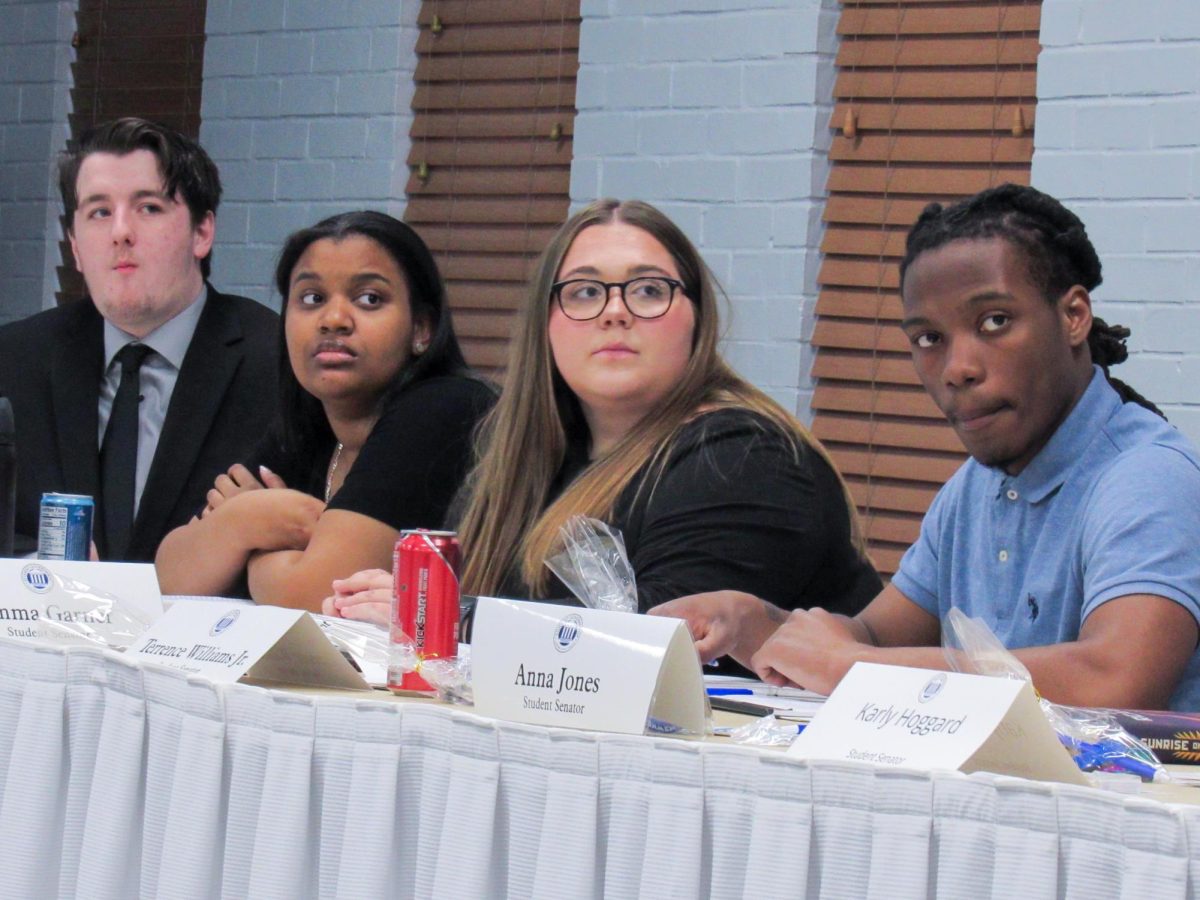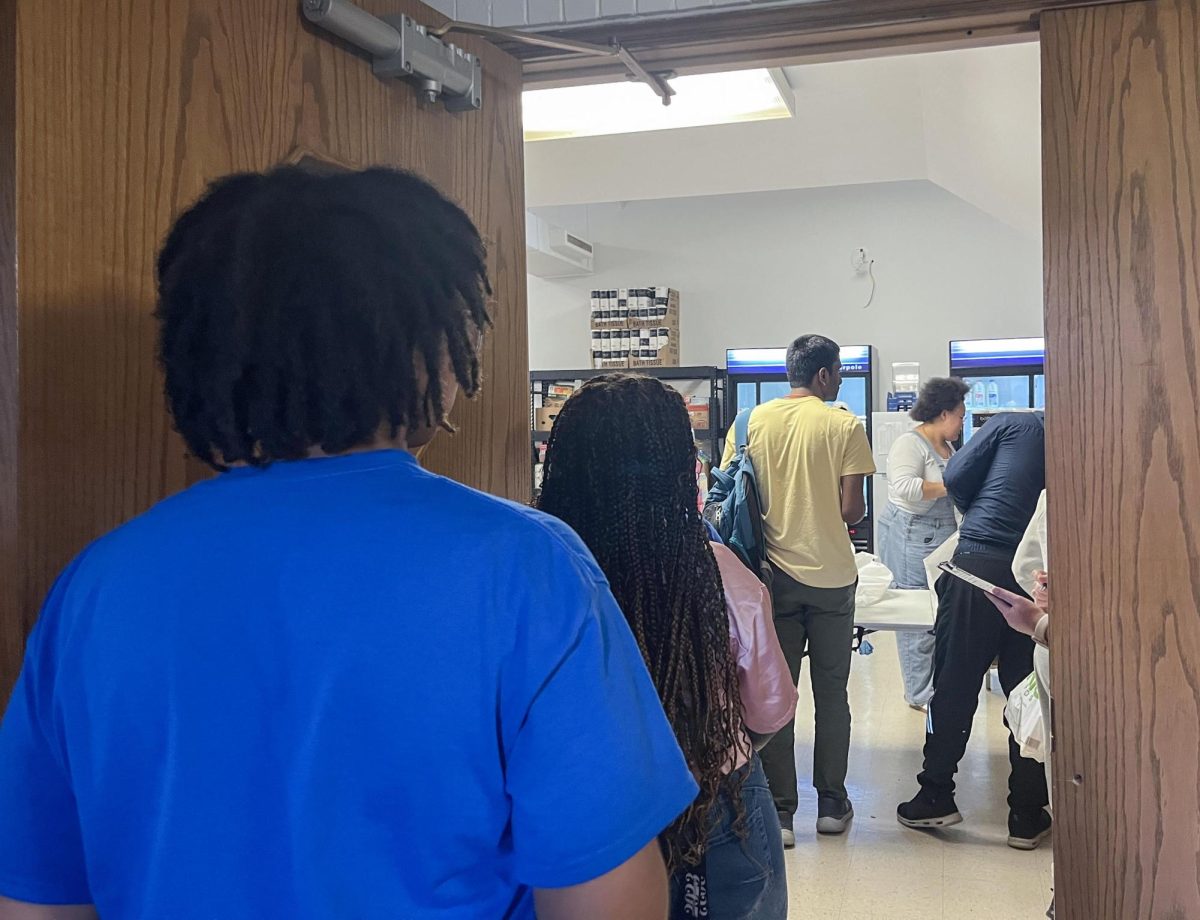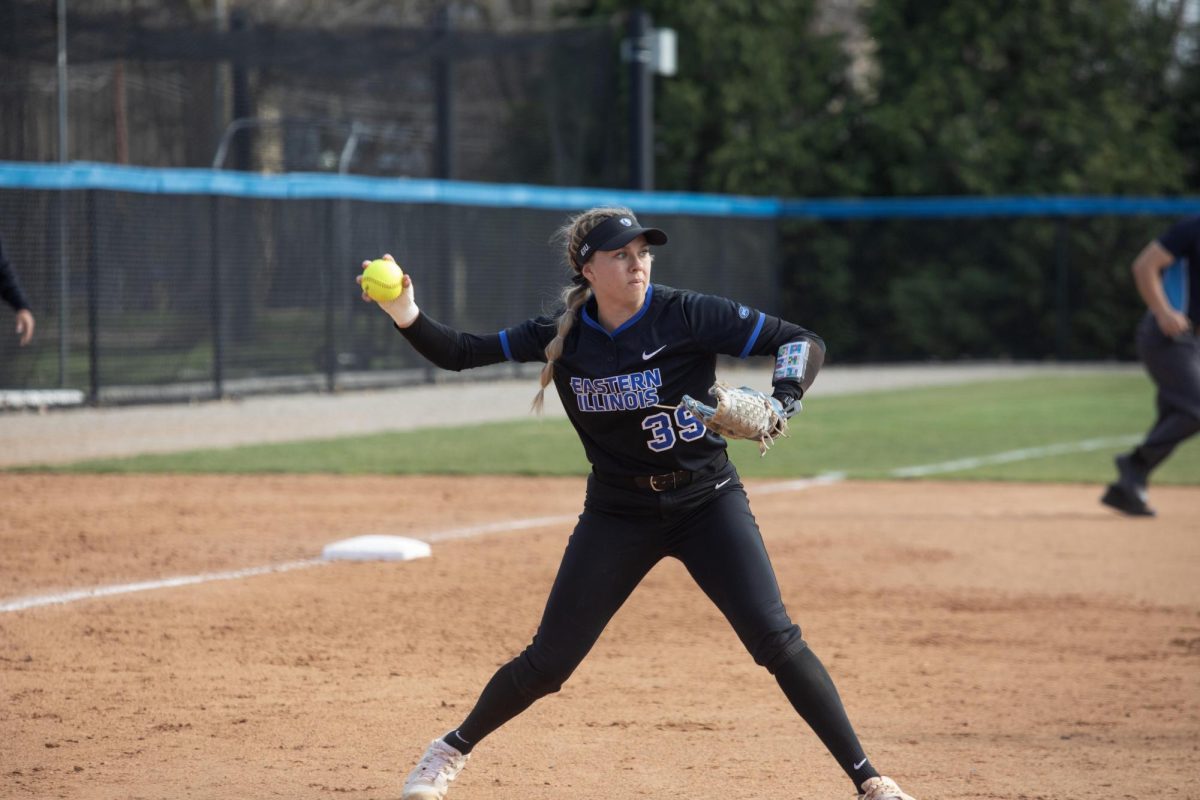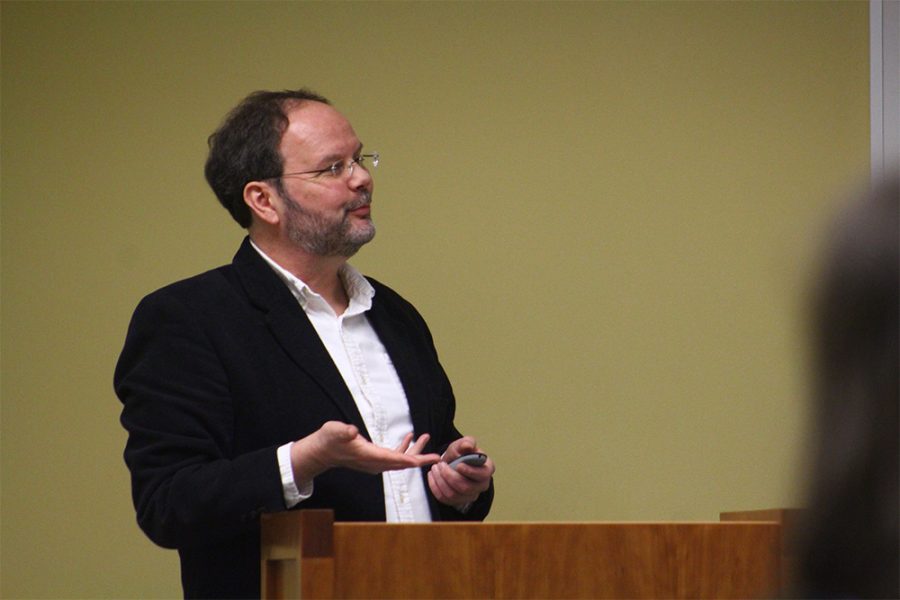Presentation discusses white male privilege, Kavanaugh
Tim Engles, an English professor, speaks at an event on Tuesday night called “White Man, Listen!” The event was held in room 4440 in Booth Library. “Angry white men… That’s basically my topic here,” Engles states after mentioning how he studies white masculinity. Engles spoke about white life novels, and read about Savage Holiday, a book by Richard Wright.
February 13, 2019
Eastern professor Tim Engles highlighted Richard Wright’s diagnostic of the resentment fueling white men in his novel “Savage Holiday,” citing the parallels between an angry white character and Supreme Court Justice Brett Kavanaugh at the “White Man, Listen!” presentation at the Booth Library conference room on Tuesday.
Engles pointed to a tendency in which the privileged take their benefits for granted, ignorant of how the status of being a white man purchases advantages foreign to those of other demographics.
Rather than contemplating on the history of these privileges, Engles said white men ordain themselves into victimhood, circumventing discussions of race and racism altogether, much of it playing into this masculine anger as illustrated in the novel.
“I think being in empowered positions makes us, well, that word I used at the end, delusional about ourselves,” he said. “It causes us to not understand certain things about ourselves that other people do.”
As a result, white people might claim they do not benefit from racial privilege or classify such statements as an attempt at policing the language.
“It’s a novel I am crediting with having a black person’s necessarily informed insight about how white psychology works, especially white male psychology,” Engles said.
“He’s analyzing why white men get so angry in certain ways and why they’re aggressive towards people of color especially.”
Kavanaugh’s anger-induced opening statement at his Supreme Court hearings, pinning the blame on a left-wing conspiracy intended to vandalize the image of both him and his family, relates to Erskine, a central character in the book.
Clinging to a white male identity tied to his occupation as a judge, Kavanaugh, Engles said, felt entitled to a position on the Supreme Court, not unlike Erskine’s longing for respect.
Erskine, desperate as he was to get back into his apartment, symbolized a longing to get back into a white male identity.
Although observers lack the means of examining the white male psyche, Engles said, an understanding of the justice’s emotions and thought patterns, evoked in his responses throughout the confirmation hearings, remains within reach.
“He probably wouldn’t be thinking and feeling the way he did, if he was not a traditional white man,” Engles said.
“He feels like a victim and he turns the tables on the people that are questioning him and accuses them of victimizing him, when they are accusing him of being a victim.”
Engles said he anticipates, and has witnessed through movements like Black Lives Matter, a backlash in response to racism and sexism, problems that have elevated Donald Trump to the Oval office.
He is also optimistic that reaction might include a proliferation in the number of novels pertaining to this subject, but, more broadly, he aspires for introspection.
“And so, of course, I take Richard’s Wright’s words to heart, us white men, we should listen,” Engles said.
Tom O’Connor can be reached at 581-2812 or troconnor@eiu.edu.





![[Thumbnail Edition] Eastern Illinois University President Jay Gatrell welcoming staff and faculty to the Spring 2025 Plan 2028 update in Doudna Fine Arts Center on March 26, 2025.](https://www.dailyeasternnews.com/wp-content/uploads/2025/03/P2028_01_O-1-e1743206673730-1200x560.jpg)


![[Thumbnail Edition] Senior Foward Macy McGlone, getsw the ball and gets the point during the first half of the game aginst Western Illinois University,, Eastern Illinois University Lost to Western Illinois University Thursday March 6 20205, 78-75 EIU lost making it the end of their season](https://www.dailyeasternnews.com/wp-content/uploads/2025/03/WBB_OVC_03_O-1-e1743361637111-1200x614.jpg)
![[Thumbnail Edition] Junior right-handed Pitcher Lukas Touma catches at the game against Bradley University Tuesday](https://www.dailyeasternnews.com/wp-content/uploads/2025/03/MBSN_14_O-e1743293284377-1200x670.jpg)


![[Thumbnail Edition] Eastern Illinois University baseball senior utility player Tyler Castro fields a ground ball during the team's first intrasquad scrimmage of the season on Jan. 31.](https://www.dailyeasternnews.com/wp-content/uploads/2025/03/BB_01_O-e1742874760130-1-e1742907504722-1200x911.jpg)
![[Thumbnail Edition] Senior tennis player Luisa Renovales Salazar hits the tennis ball with her racket at the Darling Courts at the Eastern Illinois University campus in Charleston, ILL.](https://www.dailyeasternnews.com/wp-content/uploads/2025/03/Tennis_01_O-1-e1741807434552-1200x670.jpg)





































![The Weeklings lead guitarist John Merjave [Left] and guitarist Bob Burger [Right] perform "I Am the Walrus" at The Weeklings Beatles Bash concert in the Dvorak Concert Hall on Saturday.](https://www.dailyeasternnews.com/wp-content/uploads/2025/03/WL_01_O-1200x900.jpg)
![The team listens as its captain Patience Cox [Number 25] lectures to them about what's appropriate to talk about through practice during "The Wolves" on Thursday, March 6, in the Black Box Theatre in the Doudna Fine Arts Center in Charleston, Ill.](https://www.dailyeasternnews.com/wp-content/uploads/2025/03/WolvesPre-12-1200x800.jpg)



















